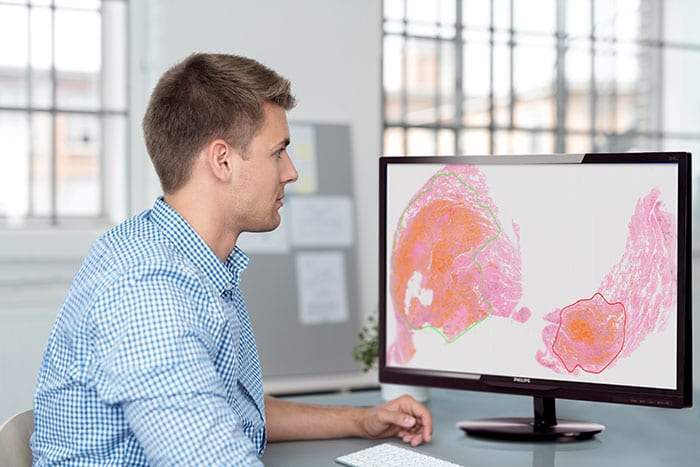
Pathologists can now use the digital pathology technology from Philips to assess and diagnose clinical histology cases digitally, instead of with a microscope, with the aim to enhance laboratory efficiency and quality.
“MFDS approval for the Philips IntelliSite Pathology Solution is an important step toward innovating pathology services in South Korea,” said Marlon Thompson, General Manager of Philips Digital Pathology Solutions.
“Not only will implementing digital pathology promote increased efficiencies and collaboration between pathologists within South Korea and abroad, but it also unlocks opportunity in the future for computational pathology, which aims to increase accuracies and enhance patient care.”
Pathology services are under pressure to meet the increasingly complex demands of cancer care. As the number of cancer cases continues to grow, the complexity and number of tests have simultaneously increased to support improved patient care.
Pathologists must work as efficiently and effectively as possible to analyze the complex information that influences the design of personalized treatments. Outside Korea, where CE-IVD mark has allowed primary diagnosis since 2014, digital pathology is recognized for increased efficiencies in the logistical and consultative needs in primary diagnosis of histopathology images.
Philips IntelliSite Pathology Solution is an automated digital pathology image creation, viewing and management system comprised of an ultra-fast scanner and image management system. This solution contains advanced software tools to manage the scanning, storage, presentation, reviewing, and sharing of images.
Philips IntelliSite Pathology Solution is available globally for primary diagnostic use. In addition to its CE-IVD clearance, it was the first – and currently only – digital pathology solution allowed to be marketed for primary diagnostic use in the U.S. since April 2017 and in Japan since December 2017.






